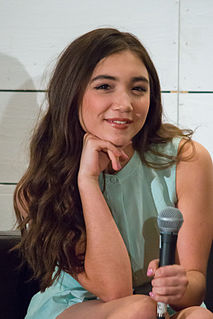A Quote by Mary E. Hunt
Margaret Miles offers a stunning treatment of human experience, coaxing humans to leave dualisms behind and embrace our intelligent bodies. In a foundational text, she draws on the arts, philosophy and theology, and her experience as a hospice volunteer to explore concrete alternatives to privileging the rational mind. Her erudition, wisdom, and graceful writing are compelling proof of the intelligent body.
Quote Topics
Alternatives
Arts
Behind
Bodies
Body
Compelling
Concrete
Draws
Embrace
Erudition
Experience
Explore
Foundational
Graceful
Her
Hospice
Human
Human Experience
Humans
Intelligent
Leave
Margaret
Miles
Mind
Offers
Our
Philosophy
Proof
Rational
She
Stunning
Text
Theology
Treatment
Volunteer
Wisdom
Writing
Related Quotes
Holly came out with a book and she gave her experience. This is what I told Kendra, 'She's writing about her experience and this is how she's reflecting on it and she has a right to do that. And you have a right not to agree with her, but lashing out like this and saying such vile things and stuff isn't really the way to handle it either.'
The pretense that humans are superior to nonhumans is entirely unsupportable. I have seen no compelling evidence that humans are particularly more "intelligent" than any other creature. I have had long and fruitful relationshis with many nonhuman animals, both domesticated and wild, and have reveled in the bouquet of radically different intelligences - different forms, not different "quantities" that they have introduced to me, each in his or her own time, in his or her own way.
She died that night. Her last breath took her soul, I saw it in my dream. I saw her soul leave her body as she exhaled, and then she had no more needs, no more reason; she was released from her body, and being released, she continued her journey elsewhere, high in the firmament where soul material gathers and plays out all the dreams and joys of which we temporal beings can barely conceive, all the things that are beyond our comprehension, but even so, are not beyond our attainment if we choose to attain them, and believe that we truly can.
She expected the pain, when it came. But she gasped at its sharpness; it was not like any pain she had felt before. He kissed her and slowed and would have stopped. But she laughed, and said that this one time she would consent to hurt, and bleed, at his touch. He smiled into her neck and kissed her again and she moved with him through the pain. The pain became a warmth that grew. Grew, and stopped her breath. And took her breath and her pain and her mind away from her body, so that there was nothing but her body and his body and the light and fire they made together.
And she loved a man who was made out of nothing. A few hours without him and right away she’d be missing him with her whole body, sitting in her office surrounded by polyethylene and concrete and thinking of him. And every time she’d boil water for coffee in her ground-floor office, she’d let the steam cover her face, imagining it was him stroking her cheeks, her eyelids and she’d wait for the day to be over, so she could go to her apartment building, climb the flight of stairs, turn the key in the door, and find him waiting for her, naked and still between the sheets of her empty bed.
My mother had been an incredibly bright kid but her family couldn't afford for her to stay in education. So she lived through me. She was a very remarkable woman and I owe a huge debt to her. She was unashamed about delighting in the fact that I was intelligent, and she drove and pushed me. She was also completely indifferent to popularity.
This person had arrived, he had illuminated her, he had ensorcelled her with notions of miracle and beauty, he had both understood and misunderstood her, he had married her, he had broken her heart, he had looked upon her with those sad and hopeless eyes, he had accepted his banishment, and now he was gone. What a stark and stunning thing was life- that such a cataclysm can enter and depart so quickly, and leave such wreckage behind!
Experience is the best teacher. But in our day and time, what we need is wisdom, because wisdom overcomes experience, because experience is wisdom, but there's a level of wisdom that overcomes the experience, and that's the experience that's already lived by others. I'm not trying to repeat the histories. I already learned from what they did.
































